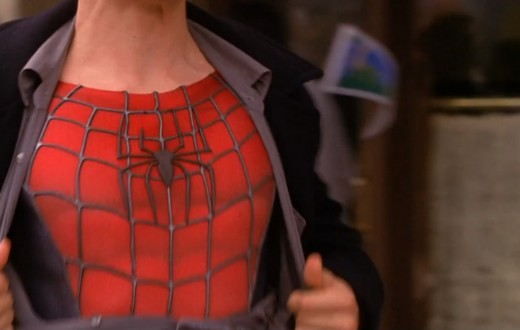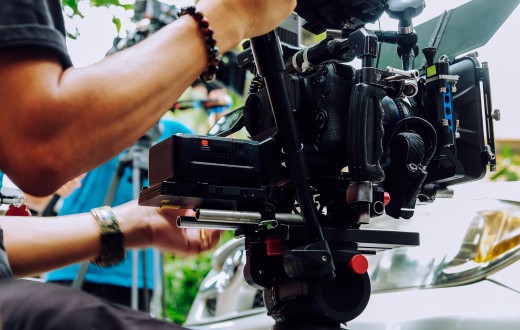Acting is of course performing in such a way as to mimic genuine human emotional life, and one of those emotions is sadness. But despite the huge, diverse and rich tapestry of human emotions, many actors are hung up on performing one specific physical manifestation of this one emotion: they are determined to cry on stage or on camera.
No on-camera dribbles of Visine or saline solution for them! These actors are super proud when they bust out the old waterworks at just the right moment in a scene or audition. But the ability to cry on cue is a contentious issue, and for good reason. So let’s clear up a few things about this bugbear of the acting community.
1. Crying on cue is a misnomer
Crying is of course the act of tears coming from your eyes. But more than that, and much more importantly in terms of acting, crying is a genuine emotional response to emotional or physical pain. Therefore to say someone can cry “on cue” may technically be correct–there may be tears coming from their eyes. But to do so on command is just as likely to betray a lack of genuine emotional connection as it is to appear to be a real human response. That’s not to say that certain words and sights and smells and sounds can’t be the trigger that sets off our emotional response of crying–I played Louis in a production of “Angels in America” and at the end of my huge, self-flagellating, self-exculpatory monologue with Belize, when he berates Louis and describes the smell of the coming snow: “softness, compliance, forgiveness, grace,” the word “forgiveness” almost always set me off and the floodgates opened. That’s what you could describe as a genuine emotional response from the perspective of the character, because of course Louis felt he was beyond forgiveness. Conversely, I had a very green assistant director working on another show once tell me, “I think you should start crying right around here, in the middle of page 23.” Just…no. That’s not the way it works, in real life or in acting. Not if what you want to see is something approaching a genuine reaction. An organic response is vital.
2. Crying in performance is overemphasized
The ability to cry in a performance is often something actors take great pride in. But as related to the above point, the actual squeezing of tears out of your face is really a symptom of emotional response, it isn’t the emotion itself. Thus many actors are so focused on making themselves cry they neglect the actual acting of the scene. The objectives of the character and his or her efforts to achieve them are pushed aside in favor of the actor’s objective of crying, and that can be deadly to a performance. I worked with an actor in the Scottish play once who, in preparation for her scene as Lady MacDuff when murderers come to kill her child would sit out in the theater lobby for 30 minutes or more working up her tears. How is this possibly in any way “being in the moment?” How in any way can the actor react naturally to the surprise arrival of murderers and the shock and fear and terror of the threat if she walks out on stage at the start of the scene already emotionally worked up to the brink of shrieking and tears? As the cliché goes, acting is reacting, and if you already have your emotion locked and loaded before the event occurs to which you are supposed to be reacting, then what you are doing is something else. It may be a type of acting, but it isn’t good acting, not in the sense of being emotionally present and connected to the scene. At that point it’s more about the actor’s ego more than anything else, and that takes them even further out of the character. Better to work on being present and thus bringing out a real and genuine reaction to the threat of murderers entering the house and threatening to kill your son. If that involves tears, great. But plenty of people experience terror and sadness and fear without great gushing gobs of saltwater rolling down their faces.
3. Crying becomes the journey
The other problem touched on briefly in the previous section is that the tears become the entire point of the scene to the actor who is fixated on crying. This is why many casting directors hate it when actors cry at auditions. The wet-faced actor is proud, happy and thinks they nailed it as they walk out; meanwhile the casting director is rolling their eyes in frustration. Why? Because the actor was so hellbent on making the tears happen they forgot to be in the scene. This means the casting director didn’t get to see their best work. The actor’s ability to be present in the moment and act out the objectives of their character were shoved aside in order to make room for the actor to think exclusively about crying. A corollary to this is that when you’re trying to cry, people can see that. You can think of it like playing drunk: a drunk person is not trying to show you how drunk they are. This is a rookie mistake many young actors make: they wildly flail around and stumble in a ridiculously exaggerated manner. But what actual drunk people do is just the opposite: they’re trying to pretend they are completely sober and in control–and probably failing. Same with crying. Our instinct is to protect ourselves and suppress tears, not seek them out. Have you ever seen a little kid try to cry in a play for sympathy? It’s painfully, often hilariously obvious that that’s what they’re trying to do. Most of the time actors who are working hard on getting themselves to cry have a similar appearance. Better to go back to the roots of acting: objective and tactics to achieve that objective. Better to be genuinely grounded in the scene, listening to your scene partner and letting yourself react honestly to whatever is given to you.
Of course it’s possible to do good work and also cry on camera or on stage. Crying and other overt displays of sadness, pain or despair are something we are conditioned to avoid, and that avoidance begins with shutting down our emotions. By allowing ourselves to be open and fully accepting of all the myriad emotions that might come our way while we are in character during a performance, we are making ourselves available for tears to come. If that’s what happens, great. If not, there’s nothing wrong with showing your feelings in other ways.
Focusing exclusively on the crying part of the equation is a distraction at best. And at worst it will deter the actor from reaching a real connection with their character and the other actors in the scene.







